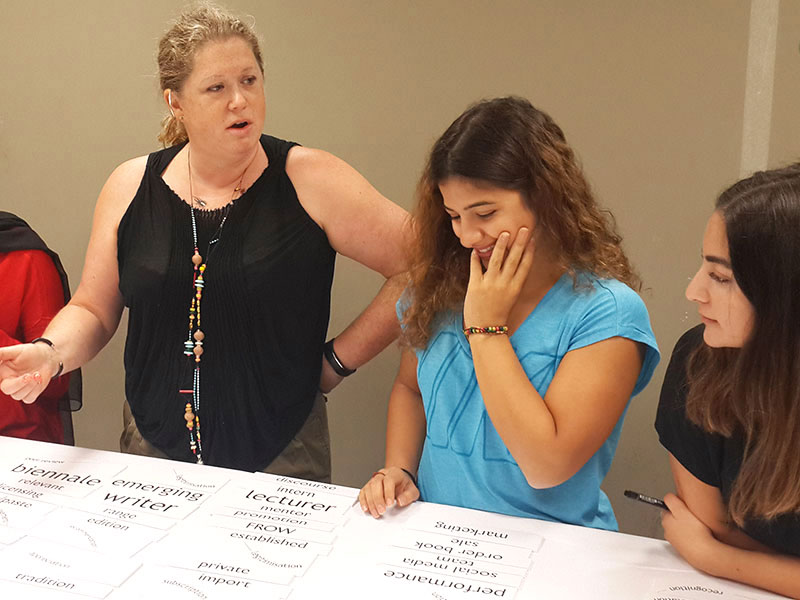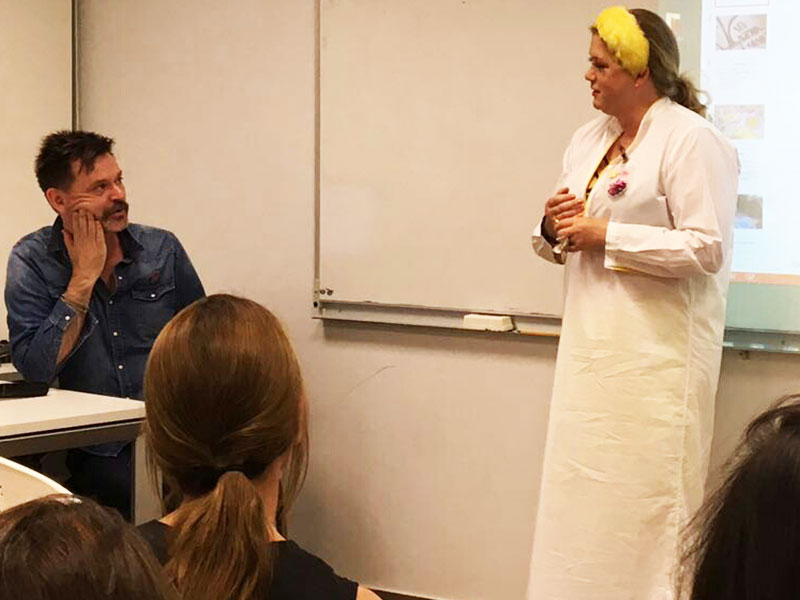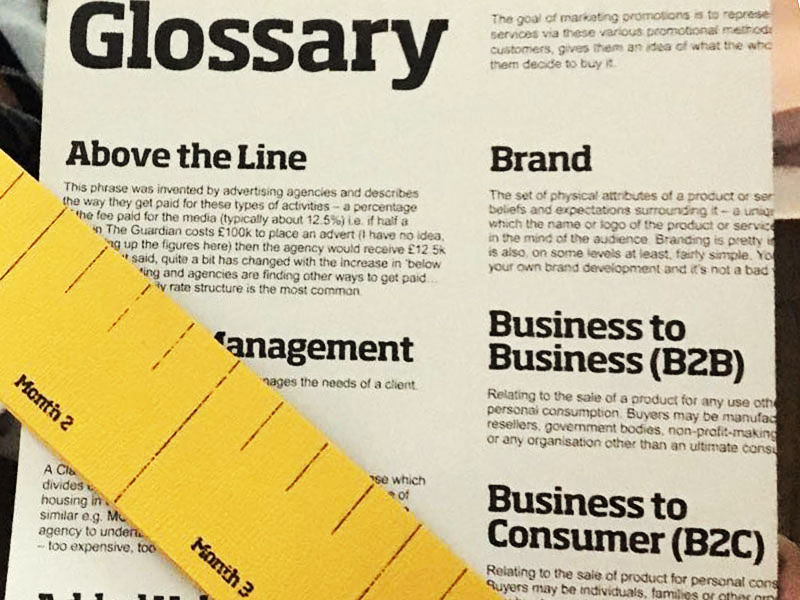Selling Out? Or Selling Yourself Short
Past and present students of the Department of Art and Design gathered to hear a lecture by Sarah Thelwall Friday, titled: “Teaching Materials to Engage Creatives in Entrepreneurship”.
The lecture revealed the thinking behind Thelwall’s immersive learning techniques to engage creatives in business skills, which she has been putting into practice during her three-day workshop for third year students on the Fashion Design Program.
A global expert in the development of sustainable business in the creative industries, Thelwall’s methods place high importance on the visual: “If it looks crap, it must be crap.”
With an MBA and years of financial experience behind her, Thelwall is more than comfortable when it comes to talking about money – or as she puts it during her talk “underestimate me at your peril”.
What she has developed over the last 15 years are a series of 3D and immersive techniques to engage more visually-minded creatives in the business skills they need to have a successful career.
“If you are very visual, and you are not familiar with the content, you’ve got to determine quite early on whether you are going to pay it any attention or not.
“The thing you are going to emphasize, or put greatest weight on, is visually - is it credible? So if I use hideous fonts on a bad layout, it sends a message that says that because it looks crap visually, I can dismiss it.”
Instead Thelwall employs what she calls “visual mnemonics,” these are objects that are “sufficiently engaging” but simple. She shies away from the usual A4 paper handouts – easily filed and then forgotten – and instead offers a more hands on experience.
“I give people, colorful, playful tools that you have to handle physically [such as] a cube we make up in one of the workshops. It is just much more memorable. Particularly if you have a bunch kinesthetic learners, as many of these guys will be.”
Dressed in a white Essa Walla dress, with a shock of yellow feathers crowning her head, Thelwall applies her strategy to every aspect of her work, including herself – “if I turned up in a business suit it would be more challenging, it would make it more difficult for me to build a bridge with the audience.”
Though her background is in finance rather than fashion, Thelwall has taken skill sets that in the past were neglected in creative degrees and translated them for a sector she evidently enjoys working in.
The key drive behind her talk, and the workshops she will be holding with LAU students in February next year, are about finding ways to make business skills seem “necessary, useful and worth spending time on”.
“On the one hand I don’t want them to make any compromises on their creative drive but I do want them to learn to balance that creative drive with a customer focus,” she explains.
It’s about supplying LAU students with the tools they will need – some immediately, and some in the future – to make a living from their chosen career path.
Thelwall says there has been a shift in focus in the last decade toward entrepreneurship modules in university, with more teaching staff giving these skills greater priority.
Here the Fashion Design course at LAU marks a “rare opportunity” she says, in particular to create a degree course that is “really connected to the cultural part of what it is to be Beiruti, to be Lebanese and from this part of the world”.
Jason Steel, coordinator of the Fashion Design Program agrees: “We are exploring what it means to be Lebanese, what it means to be young and from the Middle East.”
He sees no point in a fashion program in a developing sector that doesn’t incorporate creative entrepreneurship, and is quick to point out to those students, who during the Q&A were reluctant to raise their hand to the question of wanting money, that “money is liquid creativity, not a dirty word”.
Ultimately that is the message that Thelwall hopes to impart, telling the students present to be wary of the false dichotomy: “Fear of selling out is far greater than the fear of selling yourself short. Yet selling yourself short is the far greater problem in the here and now”.






